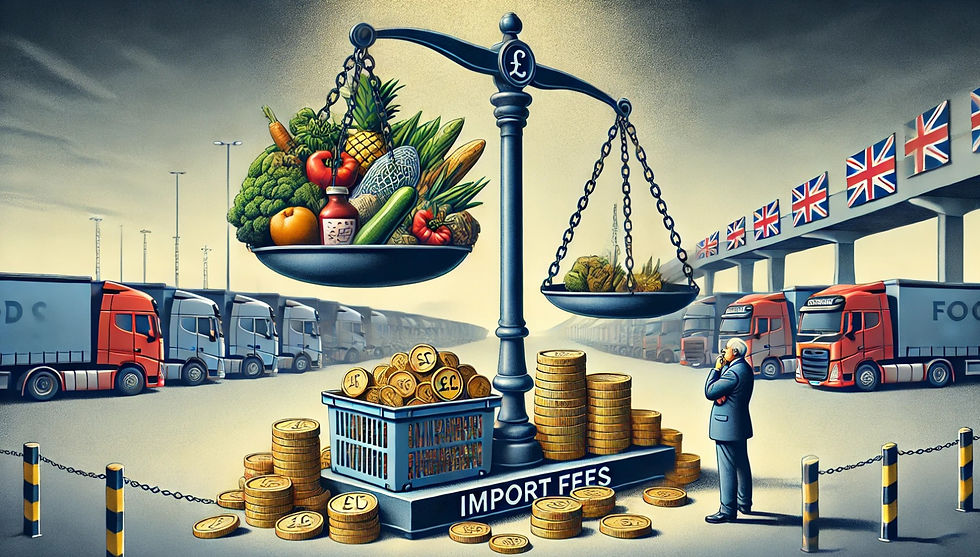UK Food Importers Warn of 'Impossible' Cost Hikes as Government Import Fees Soar
- Sarah-Jayne Gratton

- Feb 24
- 2 min read
Updated: Feb 25
UK food importers are clashing with the government over a threat of inflationary increases to import costs that shoppers can ill-afford, one expert has told The Loadstar.

Nigel Jenney, head of the Fresh Produce Consortium, warned it would be “impossible” for the supply chain to absorb an expected 27% hike in import fees set to be phased-in from August.
The increase would be geared toward achieving ‘full cost recovery’, reflecting growing inspection costs at UK Defra agency the Animal & Plant Health Agency (APHA) over the past five years.
Since being frozen since 2019, the cost base “has increased substantially”, Defra said, APHA plant health services costs having increased 141% since 2019, and Defra says the number of staff employed by APHA have increased by 183%.
But there would be virtually no scope for the supply chain to absorb the extra cost, Mr Jenney said, meaning that UK shoppers would have to foot the bill, adding: “The margins of the industry just do not accommodate the magnitude of the cost.”
Mr Jenney said inspections conducted by the UK government “monopoly” were uncompetitive in cost compared with potential alternatives offered by private sector ‘authorised operator status’ (AOS) facilities – which the FPC has been pushing for some time.
Under the common user charge applied at Dover and at Eurotunnel, “…every 100 consignments will cost £14,500. If I was allowed to go to a commercial control, that would fall to less than £500,” said Mr Jenney. “That is the magnitude of the difference between a commercially run, efficient and effective business, and the infrastructure the UK government has put in place.”
“So the same service could be bought commercially at government-approved facilities, for a fraction of what Sevington charges. Their costs are so beyond the commercial competitive position, it’s ridiculous.
“They [government] don’t understand the just-in-time dynamics of our industry and the sheer cost they are adding to the sector. It is not just about money here, but delay, which can often cause damage to the goods, making them unfit for the subsequent sale.”
Mr Jenney told The Loadstar increased costs would impact not only EU food imports, but also the the country’s ability to grow its own food.
“Many of the young plants and seeds we use to grow edible products in the UK started life in Holland or Belgium, for example,” he said. “From an edible glasshouse production, for example, we import unique varieties initially developed in Europe, so to import those it has become extremely expensive and cumbersome because there could be several weeks of delay at the border.”
New research emerged this month warning of the UK’s diminishing ability to withstand “shocks” in food supply chains, such as disease and biodiversity loss. This threat is also under discussion at the IMO this week, after a number of shipping lines and environmental groups highlighted the vast land area that could be given over to growth of biofuel crops instead of food, should incoming regulation pose a perverse incentive to do so.
“The UK’s food security is a combination of factors, our ability to import, our ability to export, and our ability to grow our own fresh produce in the UK. All of those have been knowingly compromised by successive governments,” Mr Jenney added.







Comments